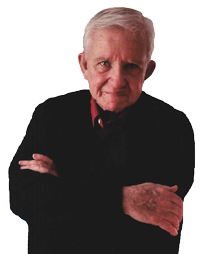THE UNCLE DAN AND SOPHIE JAM – TRIBUTE TO COLE PORTER
Tuesday, June 12th 6-8pm
With words and music, by writer Dan Wakefield and saxophonist Sophie Faught. Take a creative journey with Dan and Sophie as they tell through stories and music how they each, in different eras, became a musician, a writer. Their Jams give off the rhythm and excitement as well as the dedication/ inspiration of making artistic dreams come true.
(The ticket processing provider has had some technical trouble lately.
If you find this link doesn’t work, call 317-253-4900. You can also pay at the door, subject to availability.)
When author Cathy Day discovered her home town of Peru, Indiana, gave birth to more than the circus [her first novel was the highly-praised The Circus in Winter], she asked her grandmother why there was no statue or plaque or memorial of any kind to its world-famous native son, composer Cole Porter – why didn’t the town celebrate its most famous son?
At first her grandmother said “because he left” – to go to Yale, New York, Paris, and the world at large – and when further questioned, she said it was because he was “different,” meaning not a bi-sexually standardized American man of his time (circa turn of the century, coming of age in the 1920s.)
Small and thin, described as “frisky as a monkey” and “aloof,” Porter wore pink and yellow shirts with salmon ties at Yale and became a Big Man on Campus by writing the school’s popular football songs (he was elected president of the Glee Club and a member of the legendary Whiffenpoofs.) The stolid biographer William McBrien wrote that “Porter was homosexual but not bisexual – which no doubt diminished the tensions which otherwise might have ruptured the relationship” with his wife, the wealthy socialite Linda Lee Thomas. Sometimes after their marriage she was known as “Linda Cole Porter.” A friend thought “she was not at all lesbian – she was sexless – but absolutely in love with Cole who adored her.”
Whatever the biological algebra (or calculus) of Porter’s marriage and his many male lovers, he produced some of the greatest love songs – in both words and music – of all time. Just as a sample, try these titles: “Night and Day,” “Let’s Do It,” “It’s De-Lovely,” “Anything Goes,” “Begin the Beguine,” “You’re the Top,” “All Through The Night,” “Love for Sale.” “I Get A Kick Out of You,” “My Heart Belongs to Daddy,” “Just One of Those ambien online shopping Things,” “Easy to Love,” “Every Time We Say Goodbye,” “I Love Paris,” “C’est Magnifique,” “I’ve Got You Under My Skin,” “In The Still of The Night,” “Don’t Fence Me In,” “Miss Otis Regrets,” “From Now On,” “It’s All Right With Me. . .”
Little wonder that columnist Walter Winchell called him “King Cole Porter” and TIME magazine crowned him “Man of the Year” in 1935, reporting that it was “now considered the smartest thing to know the lyric s [of his songs] by heart and rattle them off when the song is played.”
Asked what he liked, Porter said “Cats, parties, swimming, scandal, films and Peru, Indiana.”
He was often counted out but he always came back. Both his legs were crushed by a horse in a riding accident in 1937, but he endured multiple surgeries to his legs, learned to walk with canes, and wrote more Broadway musicals, Hollywood movie scores and hit songs. In WWII his music made the movie “Hollywood Canteen” a huge hit. He made Ethel Merman a star and discovered Mary Martin for the Broadway stage.
He hadn’t had a hit on Broadway for a few years and again was declared dead in the water; then in 1948 he turned Shakespeare’s “The Taming of the Shrew” into his biggest hit of all, “Kiss Me Kate.”
There were more hit musicals – “Can-Can,” “Panama Hattie,” and movies “Silk Stockings,” “DuBarry Was a Lady”- studded with hit songs. He lived life to the fullest, sunning on the Riviera with Scott and Zelda Fitzgerald, traveling to meet the Sultan of Zanzibar, climbing Maccu Piccu, finally being honored by the state of Indiana when “Cole Porter Day” was declared in Indianapolis. This last laurel led Booth Tarkington to observe: “Of course it’s something to be a Hoosier who became a Hollywood and Broadway celebrity; but when a New York and Broadway celebrity becomes so celebrated that he’s known in Indiana too, he has touched the mantle of fame itself.”
Porter said “if I was born twenty years earlier, I would have been an Indiana banker” – that was his father’s wish, which thankfully for the public did not come true.
What a banquet of music and story to feast on, with our star saxophonist Sophie Faught and her trio playing Porter’s songs, and novelist Cathy Day joining me to tell the story of Linda and Cole Porter (the French called them “lecoleporteurs”) on Tuesday, June 12, at 6 pm at The Jazz Kitchen.


